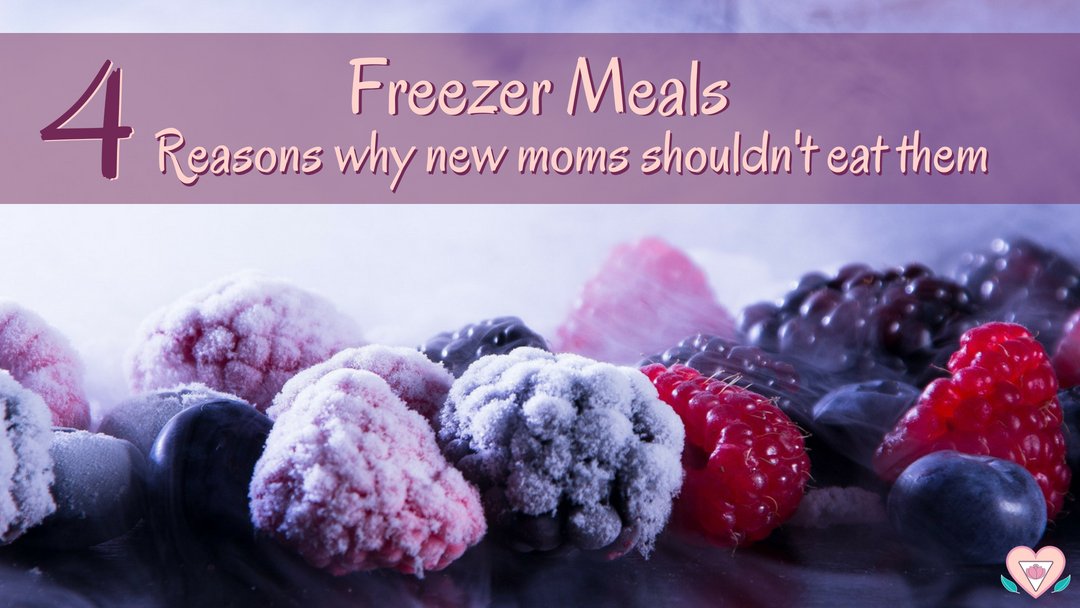
You are excitedly preparing for the birth of your baby. You want to eat healthy, be prepared, and not have to rely on others to help you with cooking after the baby is born. So naturally, you cook like a mad woman and prepare oodles of freezer meals, ready to be eaten after the baby arrives.
Seems like a great idea, right? Lots of people do it – so it must be good. Think again.
Many women have a hard time postpartum. Maybe they have the baby blues, suffer from exhaustion, insomnia, constipation or have to endure the hardships of baby colic.
All of these troubles stem from a lack of proper postpartum care. Many new mothers just don’t receive the proper rejuvenation that their body needs in order to recover their balance.
Eating a rejuvenative postpartum diet is essential to avoid these postpartum problems. Eating “healthy” freezer meals, even if they are home cooked and organic, are not part of a healthy postpartum diet and can contribute to postpartum problems and a lack of vitality.
Here’s why.
4 Reasons Why Eating “Healthy” Frozen Meals Isn’t Healthy
1. Freezer Meals Are Hard To Digest
2. Fresh Food Is Nourishing – Frozen Is Just Not
3. Freezing Infuses Food With Rough, Dry and Cold Qualities
4. Frozen Food Is Degenerating In Nature
Health-Promoting Alternatives to Postpartum Freezer Meals
- A programmable slow cooker. My favorite is Vita Clay. It is made out of natural clay and is fully programmable. It also cooks food twice as fast as a regular slow cooker, as well as preserves vital nutrients.
- Scheduling friends and family to bring you freshly cooked meals during your postpartum window. Meal Train is a great resource for organizing and scheduling your family and friends to bring fresh meals.
- A pressure cooker – cook beans and legumes in a fraction of the time it would normally take on the stove-top. Cooking under pressure speeds up the cooking process exponentially. An asset to have in any kitchen.
- Hire a postpartum doula (preferably with Ayurvedic training) to help prepare meals.
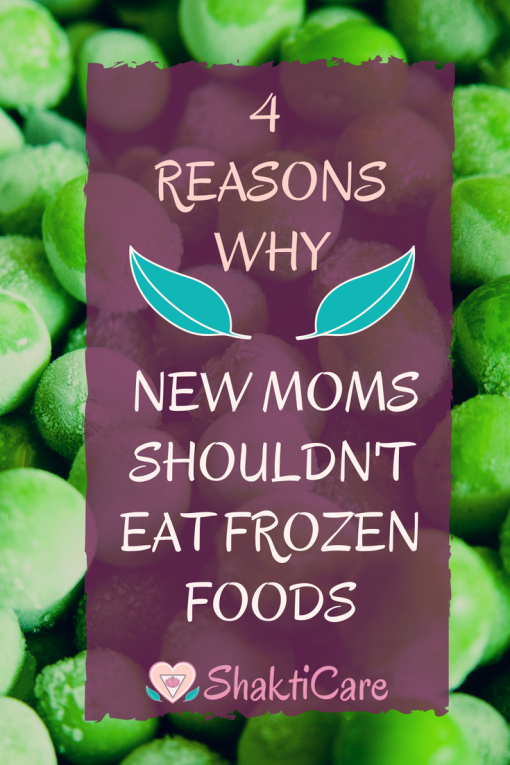

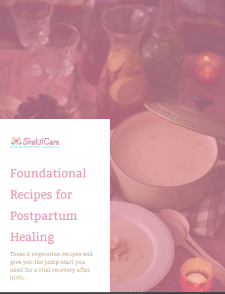
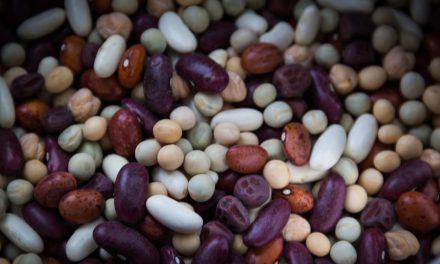
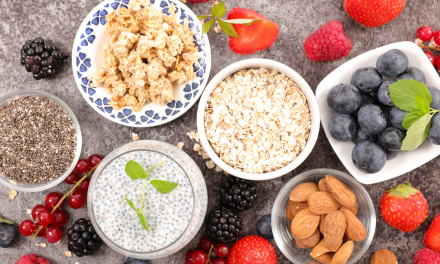


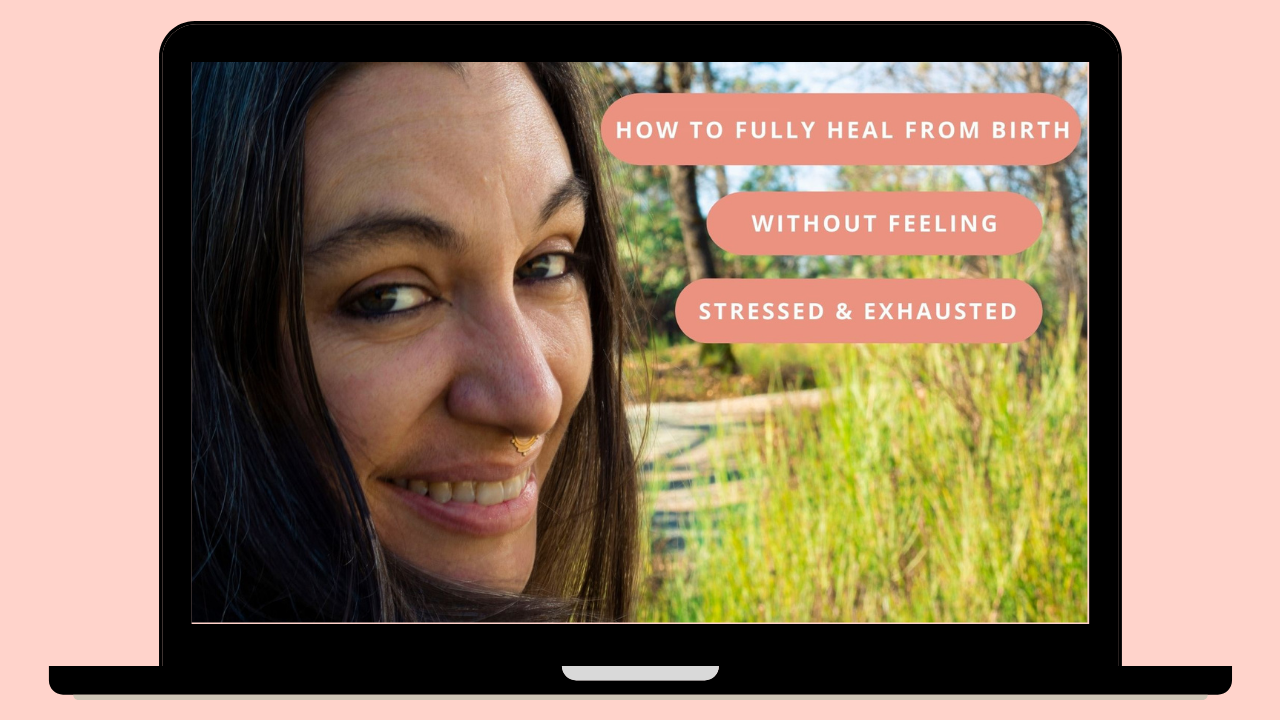




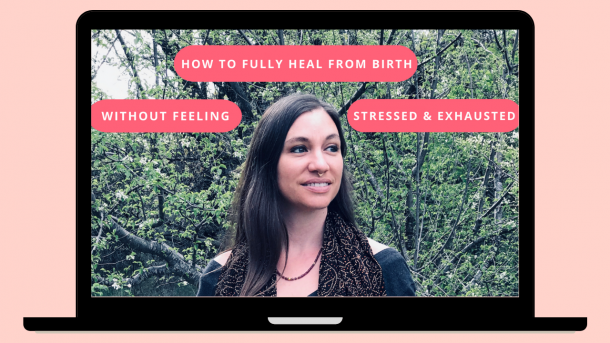
Hi Ameya,
Thank you for sharing your experience, knowledge and insight.
I live in San Jose, CA. I’m currently 12 weeks postpartum after my 2nd delivery.
This time I did not have my mom/mom in law or any immediate relatives to assist me postpartum.
So I had made my own postpartum plan on an excel sheet and hired a live-in nanny to help with cooking and taking care of my older kid.
The resources you provided were extremely useful for me and I sincerely thank you for putting this out there.
I have so much learning to share from my 2 birth experiences.. but this email is not for that.
I just want to express my sincere thanks to you for your work and passion.
Having learnt what I now know, I am sharing your website with my friends at work and in church.
Please continue what you do.. this community really needs healing!
Many Blessings,
Jincy
Wow Jincy,
Thank you for taking the time to share your experience (I’m trying not to tear up!). It makes me indescribably happy to know this much-needed knowledge is hitting home. Thank you for taking care of yourself, and therefore your family and beyond. Blessings on your healing and your new little honey!
I don’t understand how a mama is supposed to rest and cook everything fresh!
Yes, this is very true. That is why a support system is needed and should be planned and prioritized. If mama is truly alone with no possible support options, than frozen soups are the best frozen option. I also highly recommend a programmable slow cooker/Vita Clay/Instapot so you can make easy nutritious meals with minimal effort.
Hooray!! I’m so glad I found this great article. I’m currently 30 weeks pregnant and spent the second trimester not being vegetarian, I do think some of this is due to my heritage background coming into play. But since I hit the 3rd trimester I’ve automatically fallen straight back into a vegetarian diet and craving more of a postpartum diet already.
My question from this is : is it safe to eat post partum at this stage?
Thank you and many blessings
Bunny
Hi Bunny!
At this stage it is best to follow your cravings since they are really your baby’s cravings! As a vegetarian make sure you are eating a lot of Kitchari, dals and lentils and not just tofu. Feel free to use my postpartum recipes, and if you feel they are too heating, you can always substitute with ingredients like coconut, coconut oil, fennel, coriander, cilantro, vanilla and rose water.
Can we eat frozen garlic bread during breastfeeding
I wouldn’t. It’s best to stay away from frozen foods after birth, because they increase dryness in your body and are hard to digest. It’s also best to stay away from any leavened bread. Also, garlic is only a medicine after birth if it is prepared properly, which is browning it in oil.
how about chicken soup? the easiest way for me really is to cook it from a chicken that was frozen before. we could slaughter the chicken once the baby is born- but it would be nice not having to do that then.
Chicken soup works. First start with the broth only. Frozen is not idea. Fresh is best if possible.